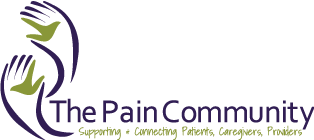How to Overcome Obstacles and Get the Care You Need
People in pain often face a number of obstacles when it comes to getting the medical treatment they need. Pain is an invisible and insidious disease, and one that is complicated to explain to both loved ones and health care providers. The more the body is taxed, the less motivated a person in pain may be to navigate the seemingly countless tests, specialist referrals and insurance company battles it may take to diagnose, treat and pay for the problem. Some health care providers don’t even consider pain to be a condition on its own, and thus may be unable to offer help or assistance. In addition, studies have found that some groups, such as minorities, children, seniors, women and low socio-economic status, are frequently under-diagnosed and undertreated for pain. Although the medical profession is trying to adapt to better care for individuals seeking treatment for pain, the changes are slow to take hold.
Even people who have understanding and compassionate health care providers and family members may find themselves not getting proper treatment due to their own hesitancy about seeking care or their reluctance to admit that the pain is unmanageable. This is especially true among men and older adults.
If you have pain, you deserve comprehensive care and access to the many treatment options available to you. Following are some ideas about how to ensure you’re getting the best care for your condition.
- Before going to your health care provider, take time to write out all of the symptoms, possible triggers and history of your condition. Try to remember the medications you’ve been prescribed and whether they helped. This record will prepare you to talk calmly about what’s been happening without relying on memory (or giving into emotion) to convey the seriousness of your pain.
- Don’t be scared to express yourself if you feel you’re getting the “run around.” Explain very clearly that you are in pain, that it is negatively impacting your life, and that you want it to get better. If your health care provider still won’t provide answers or ideas, get a second opinion.
- If you are angry, frustrated or depressed about your condition, try to calm your emotions. Negative emotions can sometimes prevent you from getting the help you need. There are a number of ways to help you relax and manage your frustration, including meditation, yoga, T’ai Chi Chih, or other complementary therapies. Investigate the possibilities, open your mind and allow yourself time to focus on the most important part of the equation: you.
- Educate yourself about your condition. Look at it the way you would look at buying a new house or choosing a college, and make an effort to learn everything you can from the most reliable sources you can find.
- If you are stonewalled and feel that no one understands what you are going through, try to find a support group that either meets in your area or join us on The Pain Community discussion forums, live online chats, or outreach support calls – you are not alone! Others who have experienced similar situations can provide valuable information, advice and emotional support.
- No matter how boring or nerve-wracking, set aside a solid chunk of time to research your insurance benefits, as well as any government assistance, worker’s compensation or disability payments you might be entitled to. There are a number of agencies devoted to patient rights and health care benefits that can offer help to you and your family. A partial list includes:
The most important thing to remember in the battle against pain is to never give up. No matter what happens, keep fighting to get your voice heard and your pain treated.
